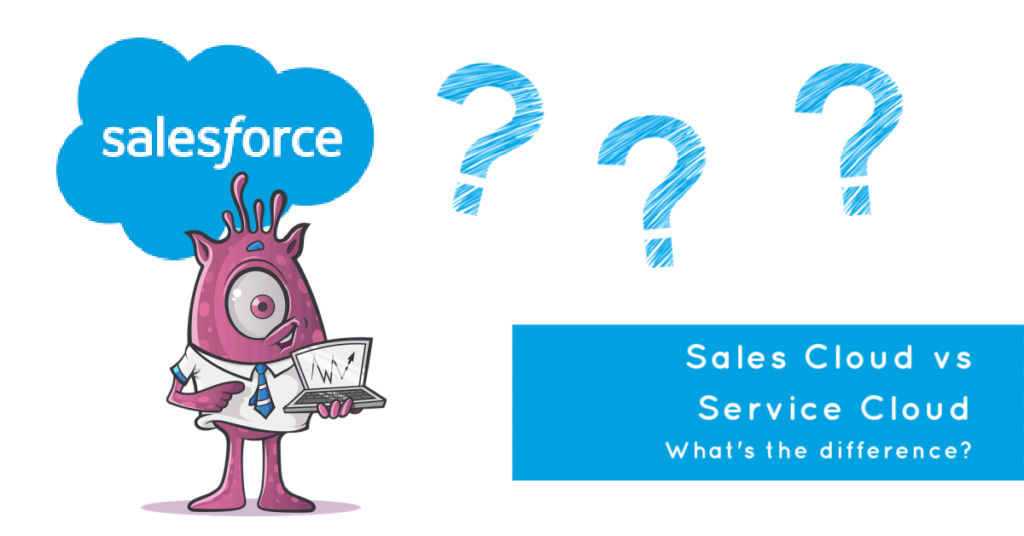
New to Salesforce or thinking about transitioning to it?
It’s important to know about Sales Cloud and Service Cloud and their differences so you can make the best choice for you and your company. Upon sign up, Salesforce will offer you two module options – Sales Cloud or Service Cloud.
Here’s a brief overview:

Sales Cloud is useful for companies that are driven primarily through lead generation and sales. Some of the benefits to using Sales Cloud include:
1. The ability to act as a one stop shop for transactions
Sales Cloud allows your team to easily work remotely for tasks such as data sharing, approvals and deal closes all in the palm of your hand (through a Smartphone) make Sales Cloud an attractive module.
2. An improved level of productivity within all company departments
If you want to find a better way to manage your team’s progress, Sales Cloud allows you to display your team’s progress against your quota.
With this data comparison feature, reporting becomes easier to review and manage allowing you to discover the weak links in your company’s productivity quickly and come to a solution much faster.
3. The peace of mind of customer protected data
Thanks to Sales Cloud, your customer data stays right where it belongs even if you lose a rep. This allows for more accurate forecasting along with the protection of your customer’s data.
Additionally, Sales Cloud keeps your customer data in one place. This keeps all you need to know well organized and allows you to grow your company including customer databases seamlessly.

Service Cloud is just as it sounds, this module focuses on service and cases. If you sell products and/or services, Service Cloud can be really useful.
Some of the benefits to using Service Cloud include:
1. The allowance for a single application data store
Salesforce Service Cloud offers many features that help streamline actions such as case management, customer access across all channels, legacy system integration, support ticketing, routing, case escalation and management.
2. Better communication with your customers preferred channels
With Service Cloud, communication between yourself and your customers have never been easier. Does your customer prefer Facebook Messenger, Wassap or SMS? You can easily communicate with your customers and since the pivot to remote work, this feature is almost a necessity as well as a benefit.
3. The offering of a one console application
With the one console application, agent productivity is increased along with ROI and customer satisfaction.
Between the low-cost channels your customers already make use of combined with the tools agents need to enhance their personalized CSR abilities – Service Cloud has been deemed “world class” in it’s capabilities.
Aside from their differences, Service and Sales Cloud have overlapping features as well.
It’s a consensus that both Sales Cloud and Service Cloud can help shorten your Sales Cycle. A shortened sales cycle will save you both time and money while allowing for expansion and growth.
Questions?
For more information about Salesforce Service and Sales Cloud modules you can contact us at tammy.chapman@axtcorp.com.


